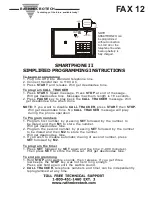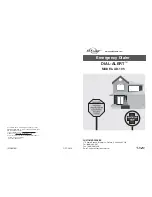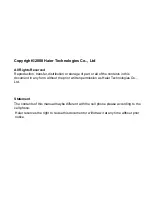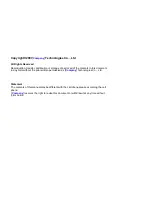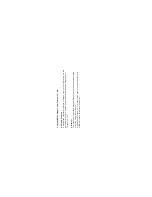
Copyright 2010-2017 Obihai Technology, Inc.
201
t(f_0/on_0+off_0,f_1/on_1+off_1,f_2/on_2+off_2,f_3/on_3+off_3)
t
: the cadence segment duration in seconds
▪
Negative value: tone plays indefinitely
▪
No value: tone plays indefinitely
▪
Zero value: the duration of this particular segment is zero
▪
Positive value: Normal playback duration
f_0/1/2/3
: a numerical describe which frequency component(s) are used for the synthesis, and it can be one of
following 8 options (0 ~ 7)
▪
0: No frequency specified, i.e., silent tone
▪
1: The 1st frequency
▪
2: The 2nd frequency
▪
3: The 1st and 2nd frequencies
▪
4: The 3rd frequency
▪
5: The 1st and 3rd frequencies
▪
6: The 2nd and 3rd frequencies
▪
7: The 1st and 2nd frequencies if two or more than two frequency components, or the 1st frequency if only
one frequency component is available.
If no value is provided for f_0/1/2/3, it will automatically use the combination of the first one or two available
frequency components.
on_0/1/2/3
: the tone active time in seconds
▪
Negative value: Not allowed
▪
No value: infinite tone active time
▪
Others: normal tone active time (up to 3 decimated digits)
off_0/1/2/3
: the tone inactive time in seconds
▪
Negative value: Not allowed
▪
No value: infinite tone inactive time
▪
Others: normal tone inactive time (up to 3 decimated digits)
Example:
4(1/.3+2.34,3/2+1.5)
The above example illustrates using the first frequency to generate tone for 0.3 seconds, followed by 2.34 seconds of
silence, then use a combination of the first and second frequencies to generate tone for 2 seconds, then followed by
1.5 seconds silence. The cadence operates repeatedly for 4 seconds.
Tone Examples:
With these examples, we will show the interpretation of a few common tone patterns:
Dial Tone:
DIAL, "350-18,440-18"

































